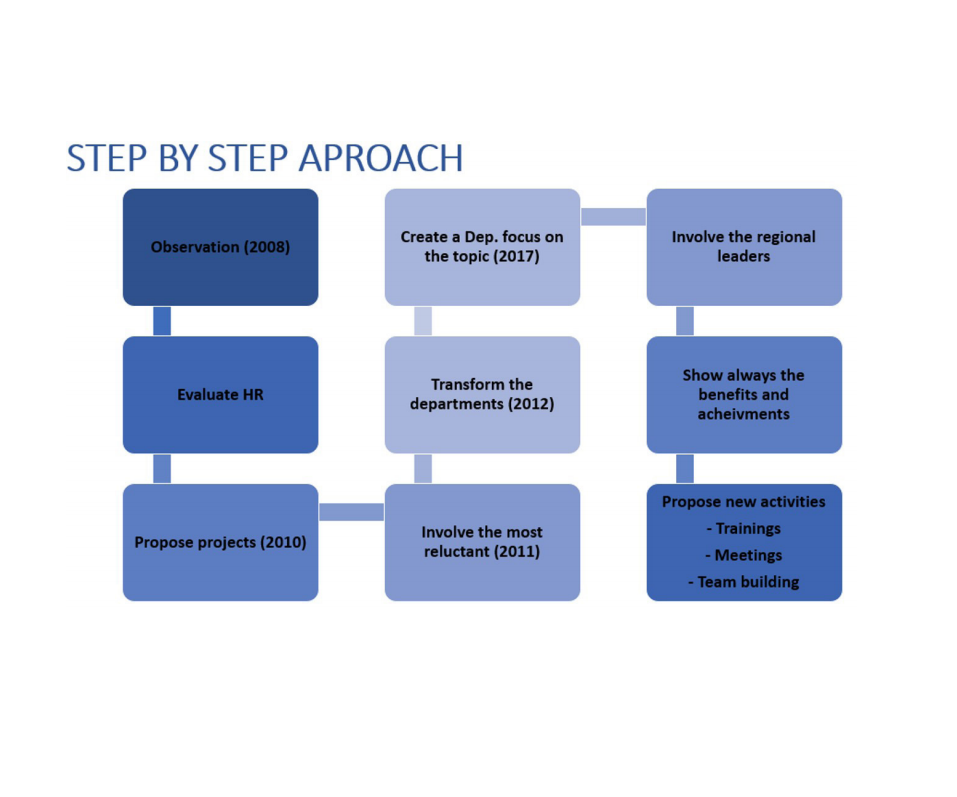Creating a dedicated department for equality in the union
Internal practice
Duration
Ongoing, since 2012.
Reason it was developed
FSLE is a nationally representative trade union organisation in the education sector in Romania. It includes 172,000 members organized into 62 unions at the county level. FSLE is the biggest union in Romania, covering over 60% of all employees in the education sector. The FSLE’ By Laws and strategy also emphasise the continuing education and training of affiliated education sector workers. In this context, the union decided to pursue the establishment of a specific internal structure focussed on equality issues. This was also prompted by new staff joining the union’s core team who wanted the union to become more active in equality issues.
Activities
The union established an internal structure focussed specifically on the equality issues within the FSLE. The establishment and development of the Department’s activities was a gradual process taking place over several years (see Figure 1.2). The process started with the initial observation of the existing union internal structures, including the gender-balance of the management board, the existing composition of departments and committees. Following that, the existing structure was evaluated to review the level of attention to the equality issues in the union. To demonstrate concrete and tangible value of equality-related work for the union members, the promoters of the Equality Department implemented a series of concrete projects and activities for the members where equality issues were part of the overall training and continuous professional development agenda. This allowed the involvement of the most reluctant members and the management team who did not initially perceive the value of having a separate Equality Department. This ensured their support for the establishment of the Equality Department when a major internal reorganisation of the trade union took place in 2012. Since then, the Equality Department is operational and is involving regional leaders to deliver a range of activities focussed but not exclusively on the equality issues. The focus of the Department work has always been to demonstrate the benefits and positive achievements of the equality related work. Looking forward, the department is planning further activities, training, meetings and team building activities to promote further the equality agenda amongst its members.
Results
The key immediate impact of the practice was the establishment of the dedicated Equality Department in the union. This helped to ensure a stronger visibility of equality issues within the union’s activities, as well as more concretely to provide training on the equality issues, and ensure a stronger awareness raising amongst its members. A key direct impact on the ground amongst the trade union members was the training or other activities provided to around 8,000 members through various projects, activities and other actions of the Department. The work of the Department had also, amongst other factors, a positive gender impact on the internal FSLE management structures. Over the years of operating the Equality Department, the proportion of women in the key decision-making positions in the union has significantly increased. This reflects more appropriately the diversity of the trade union membership and the education sector workforce it represents.
Funding
As resources to establish and implement equality focussed activities were scarce in the union, the Equality Department staff was very pro-active in applying for external funding (including from the ESF, Erasmus+, as well as Norway grants) to deliver equality related activities. This external funding enabled the delivery of a wider range of activities which were successfully implemented by the Department. Internally, the Department is staffed by two members, the key expert and the vice-president heading the department. Both staff members work part-time on the Equality Department related issues, alongside other union-related activities. They are supported by the union’s regional leaders and members of the National Executive Board on the basis of specific needs and project related activities.